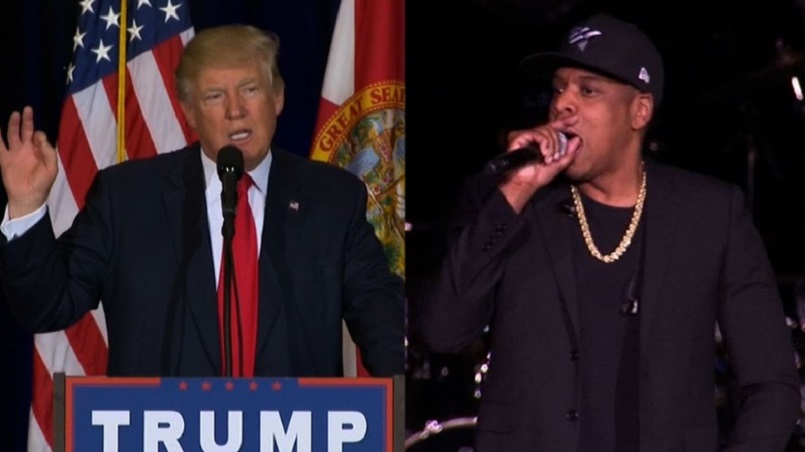
Donald Trump on Monday mocked hip-hop music as he once again criticized the performance Jay Z and Beyonce delivered at a rally for Hillary Clinton, asking whether it was "talking or singing."
"The language is so bad and as they were singing -- singing right? Was it talking or singing? Right? But the language was so bad," Trump said Monday during his first of five rallies the day before Election Day.
Trump's apparent criticism of rap and hip-hop comes in spite of the GOP nominee's repeated attempts to appeal to African-American voters during the final months of his campaign. It also comes as Clinton has ramped up get out the vote efforts in recent days by targeting young and African-American voters in particular.
Still, Trump insisted that African-American voters are turning out in droves for him, an assessment contradicted by polls that show Trump with low single-digit support among black voters. And Trump also sought to once again undercut Clinton's support among the demographic by raising the former first lady's use of the term "super predators" to describe criminals in the inner city.
"African-Americans are turning out -- and when they do a lot of them are voting for Trump," he said. "She's got not a lot of inspiration. She used the term called 'super predator' to define black youth. 'Super predator.'"
Trump's criticism of hip-hop follows his repeated and awkward appeals to African-Americans that many have criticized as tone deaf and offensive as he has described the lives of African Americans in starkly bleak and broad-brushed terms.
"African-Americans are living in hell and are living -- in, in the inner cities, I mean, they're living in hell. You walk to the store for a loaf of bread, you get shot," Trump said during a rally in Sanford, Florida, last month, repeating a line he has frequently used to describe crime rates in black communities.
Trump has also described inner cities as worse than war zones and equated the lives of minorities living in inner cities with members of those communities at large, even though a majority of African-Americans do not live in poverty.
